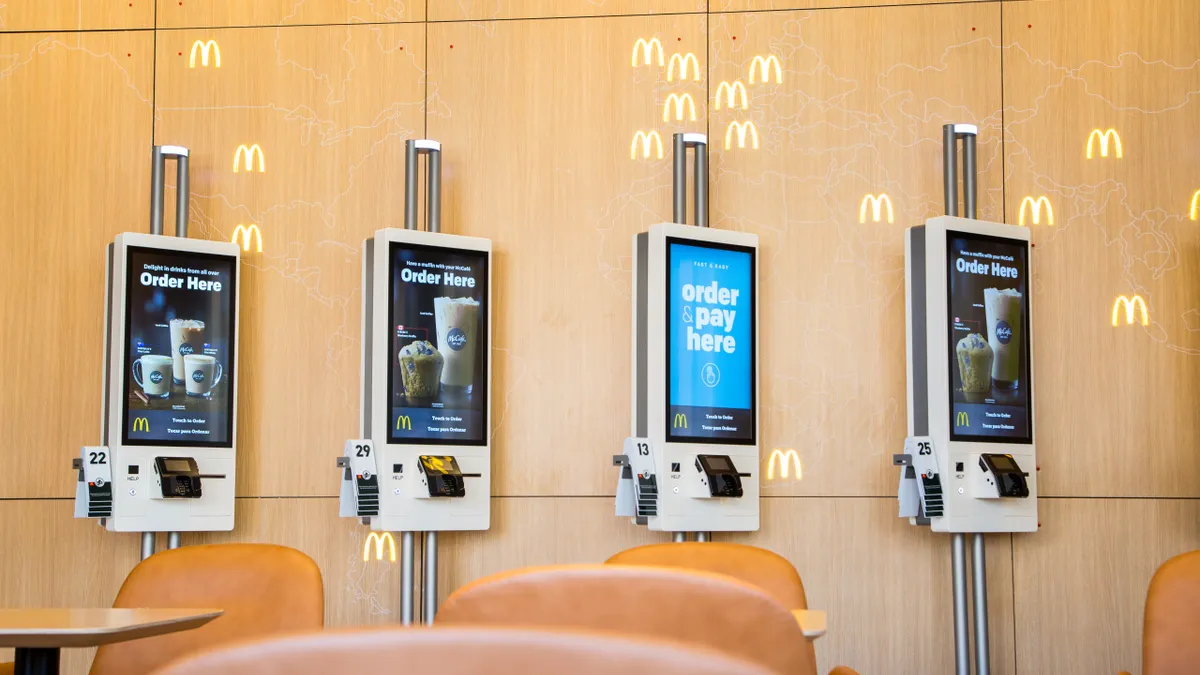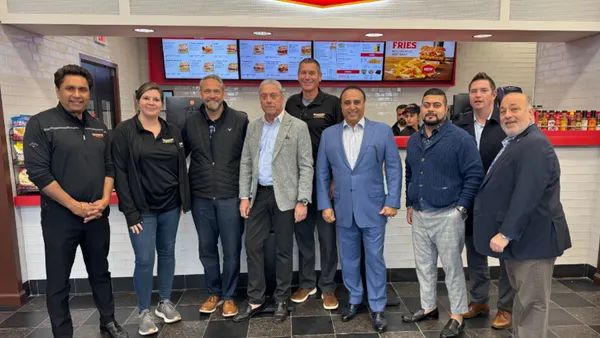Dive Brief:
- If sales at remodeled stores don't catch up to expectations, up to 40% of McDonald's operators could be in danger of losing their leases, franchisees learned at the first meeting of the National Owners Association in October, Restaurant Business reported.
- McDonald's disputes that figure and insists a majority of owners are strong enough financially to withstand forthcoming renovations.
- Owners have grown increasingly anxious about the hundreds of thousands of dollars in investment required for the burger chain's "Experience of the Future" remodels without any guarantees of recouping the money quickly. Nearly three-quarters of the company's franchisees, roughly 1,300 operators, will meet again this week.
Dive Insight:
McDonald's unique real estate model complicates its relationship with franchisees, as owners pay the company rent and decides whether to renew leases, according to Restaurant Business. McDonald's considers a breadth of factors when renewing leases, not just finances, and will likely loosen requirements during this remodeling phase. But the fast food giant might be creating a dilemma down the line if sales, for whatever reason, don’t pick up as predicted.
With the entire owner network sinking hundreds of thousands into renovations, few have the money to take over stores that might close along the way, former franchisee and consultant Richard Adams told Restaurant Business.
Remembering that owners also pay the company franchise fees, marketing and rent, some posit that McDonald’s hamstrings franchisees' ability to pay higher wages or otherwise improve their businesses. About a quarter of McDonald's revenue stems from rent, according to Fortune. Investors seem more optimistic about the chain's modernization efforts. Morgan Stanley's John Glass told investors last month that the remodels "will begin to pay off in '19 and should produce best in class sales results for more years to come."
The company's recent decision to push back its due-date for remodels from 2020 to 2022 might not pay off for franchises, especially since owners that accept the extension will pay more in the long-run. Those who have or will renovate by 2020 will pay for 45% of costs, but those who wait must cover the contract-standard 60%. Adams also told AdAge that because restaurants with drive-thrus tend to do 70% of their business outside, interior design touches don't drastically attract customers.
And these will be costly remodels, reaching $700,000 per store and into the millions for multi-unit operators (a common reality in McDonald’s system).
At the first NOA meeting, former McDonald's franchising vice president John Kujawa told attendees that the rules of the game had changed, according to Restaurant Business. Plenty of issues outside of the remodels have been fanning the flames for this fall's association formation. Previously, corporate forced owners to yield control over menu discounts and deals. Franchisees have been straddled by fresh beef Quarter Pounders, all-day breakfast, new value menus and delivery — all of which burden an already complicated operation. It also asked for 2% of gross store revenue for the national advertising fund, up from the previous 1.6%, according to Crain's Chicago Business.
Meanwhile, regional managers now oversee an average of 190 operators, or 1,300 restaurants, compared to only 50 operators before a reorganization in 2002, according to Restaurant Business. Changes to corporate infrastructure — $300 million worth of cost-cutting — have pushed franchisees to feel more like pawns than partners.









